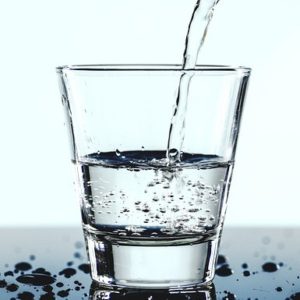
During the hot summer months, staying hydrated is vital.
Dehydration affects us all during heatwaves but those with respiratory difficulties or conditions such as Alzheimer’s are especially at risk, as are young children and the elderly.
When the temperature starts to rise, these simple steps from our care team can ensure that you and those close to you are safe and hydrated.
The warning signs of dehydration
The most obvious sign of dehydration is feeling thirstier than normal and at a more intense level. However, dizziness or feeling lightheaded are also important indicators. Dehydration can also be attributed to reduced levels of concentration along with fatigue.

Urine colour outside this bracket shows dehydration. Credit: Think Kidneys
Urine colour, while it may not be the most pleasant sign, gives a very clear indicator that your hydration levels are dangerously low. A healthy urine colour should typically be a pale yellow. Dark-coloured urine passed in small amounts is one of the body’s ways of warning you of dehydration.
Prolonged dehydration can lead to other health complications such as diabetes and low blood pressure. If you start to display any of these signs, or you spot them in a family member or friend, it’s essential to rehydrate by taking water or juice.
Reaching the right level of hydration
Generally, it’s recommended that you drink around two litres of fluid each day – roughly about six to eight glasses. This doesn’t always have to be water either; you can go for any drink as long as you steer clear of caffeinated drinks, as the ingredients in these actually make you lose fluids.
Hydration isn’t just about taking regular drinks. Around 20% of our fluid intake actually comes from what we eat. For certain individuals who have a small appetite, such as the elderly, this can result in them being more prone to dehydration.
Along with water, some of the foods and drinks that can help you stay topped up during summer include:
- Salads
- Strawberries
- Melons
- Cucumber
- Juices
You might be surprised to learn that the classic summer treats of ice cream and lollies could cause you to become hotter. The short cooling sensation that these sweet treats offer is followed by your body heating up in order to compensate for the sudden drop in temperature.
In addition, while cool drinks are refreshing, you don’t need to stop drinking tea or coffee. Even though caffeinated drinks are not advised, all fluids count in some way towards your daily intake.
Helping a loved one stay cool and hydrated at home
For individuals living with a condition like dementia, remembering to stay hydrated is particularly challenging. You can support a family member or friend in your care through giving gentle prompts and reminders to drink and sticking to a set mealtime with an additional drink.
Having a drink together is another way you can help someone close to you get the fluids they need. Offer them a choice of drinks, using a drinking aid if needed, and keep encouraging them without being demanding. Using lightweight cups also makes taking a drink feel less of an effort.
Dehydration can occur at home, even away from the heat and the sun. A cool living environment can be achieved with some simple adaptations around the home, such as turning lights and electrical equipment off when they’re not needed and ensuring that the room is well-ventilated. Keeping indoor plants is another great idea, as they act as natural ‘air conditioners’.
While it’s nice to get out and enjoy the bright weather, make sure you’re both protected from the strong sunshine and heat. Wear plenty of sun cream and opt for loose cotton clothing, as cotton absorbs moisture from sweat and helps to keep us cool. If you’re finding that either of you are starting to get too hot, stay in the shade as much as possible and have a bottle of water to hand to cool the skin.
If you do go out into the sun with a relative or friend with a health condition, encourage them to take a cool shower when you return home. Remember to give them their privacy and personal space while helping them if needed.
Make the most out of summer
By making sure you and those around you are cool and hydrated, there’s no reason why you all can’t enjoy the sunny summer months. However, it’s always important to keep checking in regularly with elderly relatives to make sure their home is kept cool and that they are looking after their fluid intake.
If you’re worried that someone you know is struggling with dehydration, speak to a GP to learn how else you can help them.
